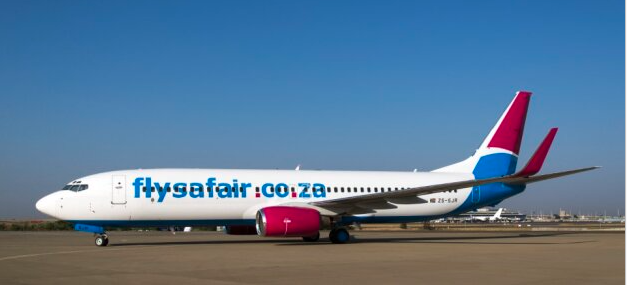The National Consumer Commission (NCC) has launched an investigation into FlySafair after the airline admitted to overbooking flights in a post on social media, sparking outrage among passengers. The investigation will assess whether the practice complies with the Consumer Protection Act.
The controversy arose when a FlySafair passenger posted on the social media platform, X, that they had arrived at the airport only to discover the seats they had paid for were unavailable. FlySafair responded, stating: “We do overbook flights to ensure we keep our tickets as affordable as possible for our passengers.” This statement triggered a flood of complaints from users.
In response to the investigation, FlySafair said it welcomed the opportunity to provide clarity on the issue. “We remain confident that our policies and practices are not only compliant with the Consumer Protection Act but also among the most transparent in the industry.”
Legal expert Advocate Louis Nel, explained to Travel News that the NCC might find that FlySafair was indeed in breach of the CPA. Nel said the CPA clearly stated that businesses could not promise to sell something, such as a flight, if they had no intention of providing the service, or if the business intended to sell something different to what was promised.
“One would have to ask FlySafair what its intention is, but one can, in my view, argue that by overbooking, it did not have the required intention to supply all the passengers that booked the service they paid for,” he said.
The airline defended its position: “Overbooking is not unique to FlySafair, it is a standard and globally accepted practice employed by airlines to manage operations efficiently, mitigate the financial impact of no-show passengers, and keep air travel affordable.” Without this practice, the airline explained, airline profitability would be severely impacted and ticket prices would increase.
FlySafair said that any investigation would need to take this broader context into account and not disproportionally target FlySafair for a practice that was integral to the functioning of the entire aviation industry.
According to the airline, overbooking affects approximately 1% of FlySafair’s available capacity and denied boardings are extremely rare, equating to no more than two seats per flight. The airline also said it provided compensation that was “fair” and “lenient”.
Nel said: “While FlySafair argues that overbooking is an international trend, the aforesaid compensation is not close to what the passenger may get in the US, for example.” According to Nel, the US Department of Transport requires airlines to compensate passengers up to $775 (R14 600) for domestic flights and up to $1 550 (29 440) for international flights. Nel believes FlySafair will likely rely on its terms and conditions, which passengers agree to when booking, to argue its case.
The airline’s terms and conditions read: “FlySafair will sell more tickets than there are available seats on a flight to ensure that flight prices are kept as low as possible. We and you further agree that this may result in your being denied boarding.”
The document continues: “In this circumstance we and you agree that: a. You will not hold FlySafair responsible for any damages or losses as a result of you not being able to travel. b. That you will accept R1 000 in cash (or the local currency equivalent in respect of international destinations) as compensation, and one of the following options: i. A seat on the next available FlySafair flight to your destination at no charge, or ii. A full refund.
“We are fully prepared to engage constructively with the NCC, providing all required information and context to assist their investigation. However, we firmly believe this process must include a holistic review of the practices of all airlines operating in South Africa, both local and international, to ensure the findings are fair, balanced, and in the best interest of consumers,” the airline concluded.

